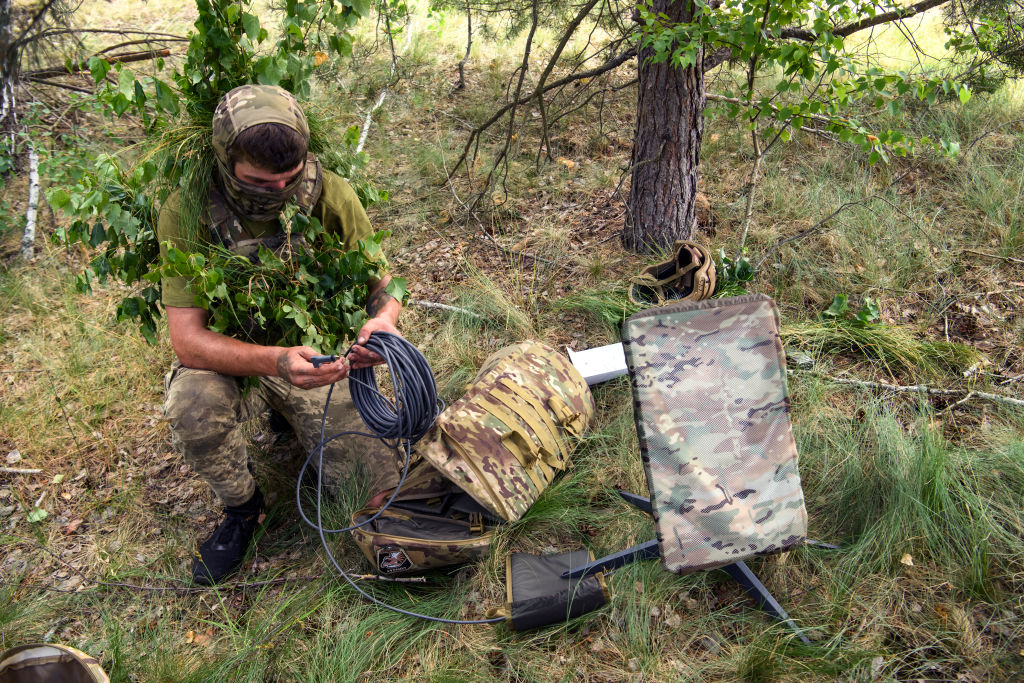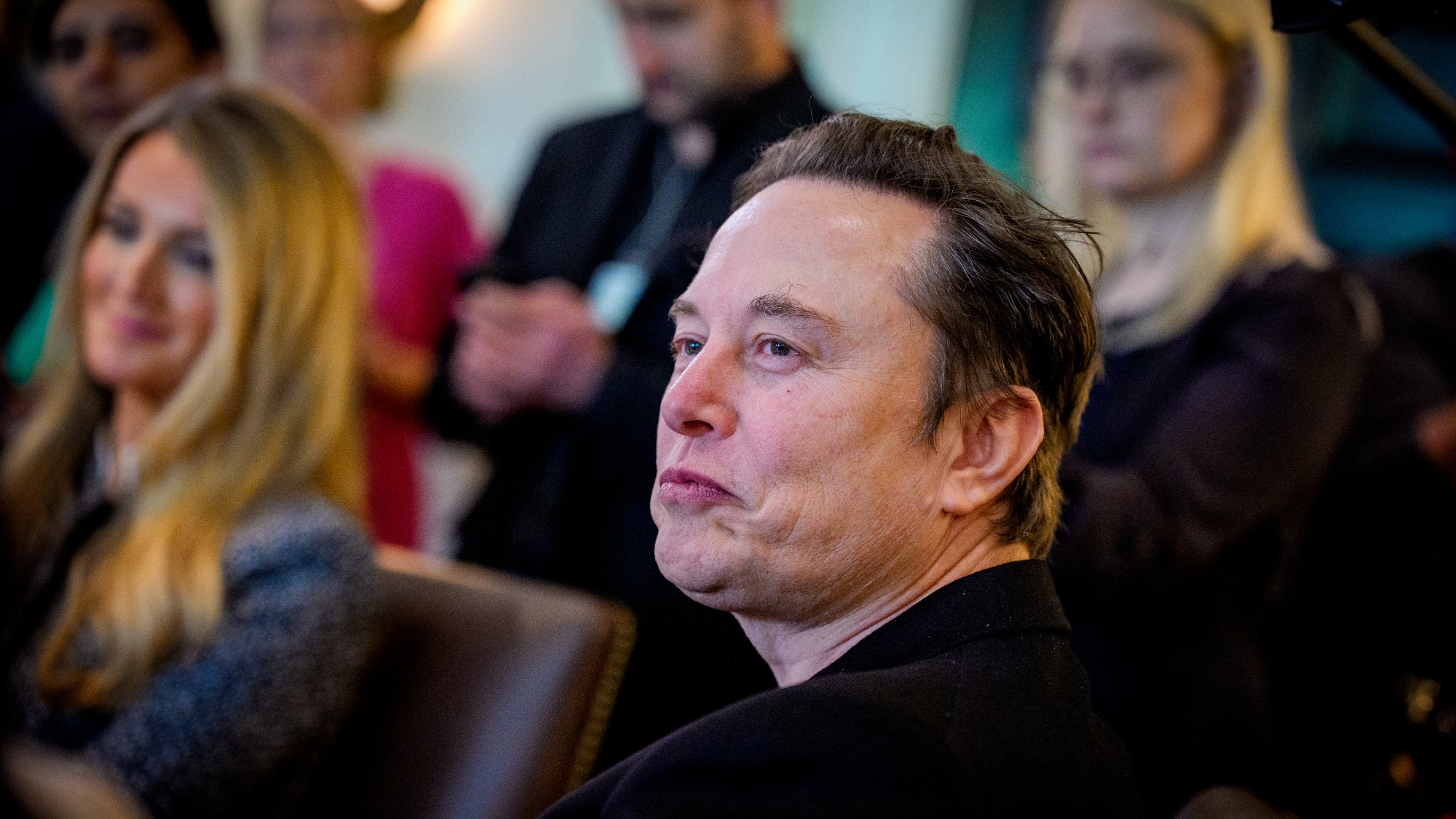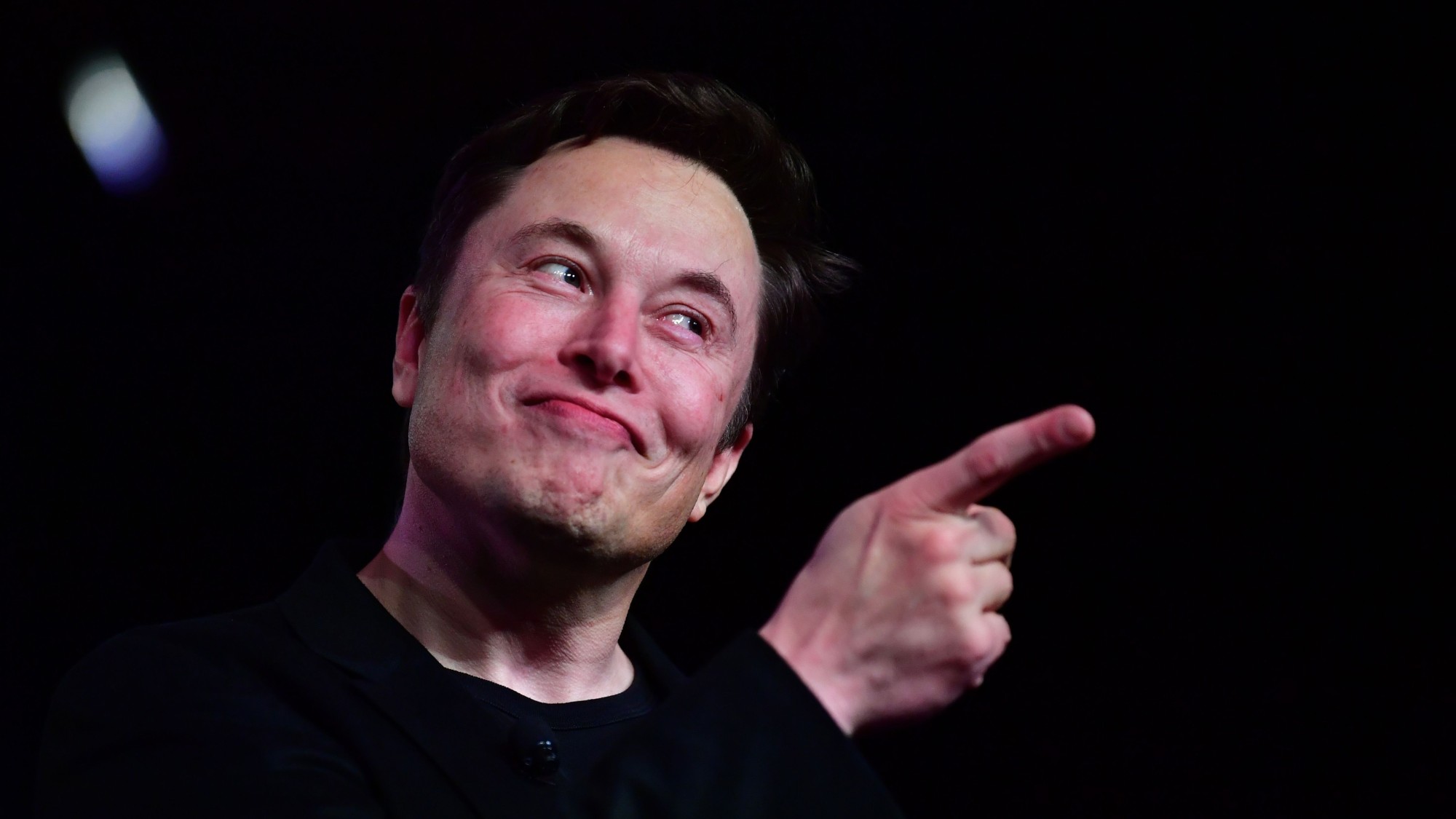Elon Musk used Starlink, which saved Ukraine, to thwart a Ukrainian attack on Russia's Crimea fleet


A free daily email with the biggest news stories of the day – and the best features from TheWeek.com
You are now subscribed
Your newsletter sign-up was successful
An hour before Russia invaded Ukraine on Feb. 24, 2022, Russian hackers disabled the commercial satellite network Ukraine and its military relied on to communicate, leaving the country largely unable to mount a defense. Elon Musk stepped in, and within days, Starlink terminals were arriving in Ukraine, getting key parts of the country back online.
Russian hackers have been unable to disrupt Starlink's network, and 18 months later, "Starlink is indeed the blood of our entire communication infrastructure now" and "one of the fundamental components our our success," Mykhailo Fedorov, Ukraine's digital minister, told The New York Times in July. A deputy field commander told the Times that "without Starlink, we cannot fly, we cannot communicate."
But Musk — who can single-handedly turn on or off Starlink internet service anywhere in the world — has also used that power to thwart Ukraine's efforts to retake land seized by Russia, Walter Isaacson wrote in The Washington Post on Thursday, in an excerpt from his biography of Musk.
The Week
Escape your echo chamber. Get the facts behind the news, plus analysis from multiple perspectives.

Sign up for The Week's Free Newsletters
From our morning news briefing to a weekly Good News Newsletter, get the best of The Week delivered directly to your inbox.
From our morning news briefing to a weekly Good News Newsletter, get the best of The Week delivered directly to your inbox.
The Times reported in July that Musk had rejected a Ukrainian request to extend Starlink service to Russian-occupied Crimea to enable a major sneak attack on Russia's Black Sea fleet with explosives-laden drone submarines. Isaacson, citing conversations with Musk, reported that the mercurial billionaire personally stepped in to foil the in-progress attack by secretly telling "his engineers to turn off coverage within 100 kilometers of the Crimean coast. As a result, when the Ukrainian drone subs got near the Russian fleet in Sevastopol, they lost connectivity and washed ashore harmlessly."
"Musk thwarted what might have been a decisive military operation to shorten the Russian war against Ukraine, save who knows how many lives and put an end to the Russian food blockade of poor countries in Africa and Asia," David Frum wrote on Musk's X, formerly Twitter. "All while a U.S. government contractor."
After the Crimea intervention, Musk decided Starlink wouldn't aid any Ukrainian counteroffensive operations. Learn how he and the Pentagon resolved those qualms and kept Ukraine online at The Washington Post, and read The New York Times on why some governments — notably Taiwan — won't use Starlink.
A free daily email with the biggest news stories of the day – and the best features from TheWeek.com
Peter has worked as a news and culture writer and editor at The Week since the site's launch in 2008. He covers politics, world affairs, religion and cultural currents. His journalism career began as a copy editor at a financial newswire and has included editorial positions at The New York Times Magazine, Facts on File, and Oregon State University.
-
 Will increasing tensions with Iran boil over into war?
Will increasing tensions with Iran boil over into war?Today’s Big Question President Donald Trump has recently been threatening the country
-
 Corruption: The spy sheikh and the president
Corruption: The spy sheikh and the presidentFeature Trump is at the center of another scandal
-
 Putin’s shadow war
Putin’s shadow warFeature The Kremlin is waging a campaign of sabotage and subversion against Ukraine’s allies in the West
-
 Elon Musk’s starry mega-merger
Elon Musk’s starry mega-mergerTalking Point SpaceX founder is promising investors a rocket trip to the future – and a sprawling conglomerate to boot
-
 Will SpaceX, OpenAI and Anthropic make 2026 the year of mega tech listings?
Will SpaceX, OpenAI and Anthropic make 2026 the year of mega tech listings?In Depth SpaceX float may come as soon as this year, and would be the largest IPO in history
-
 Ryanair/SpaceX: could Musk really buy the airline?
Ryanair/SpaceX: could Musk really buy the airline?Talking Point Irish budget carrier has become embroiled in unlikely feud with the world’s wealthiest man
-
 TikTok secures deal to remain in US
TikTok secures deal to remain in USSpeed Read ByteDance will form a US version of the popular video-sharing platform
-
 Unemployment rate ticks up amid fall job losses
Unemployment rate ticks up amid fall job lossesSpeed Read Data released by the Commerce Department indicates ‘one of the weakest American labor markets in years’
-
 US mints final penny after 232-year run
US mints final penny after 232-year runSpeed Read Production of the one-cent coin has ended
-
 Musk wins $1 trillion Tesla pay package
Musk wins $1 trillion Tesla pay packageSpeed Read The package would expand his stake in the company to 25%
-
 How Tesla can make Elon Musk the world’s first trillionaire
How Tesla can make Elon Musk the world’s first trillionaireIn The Spotlight The package agreed by the Tesla board outlines several key milestones over a 10-year period
